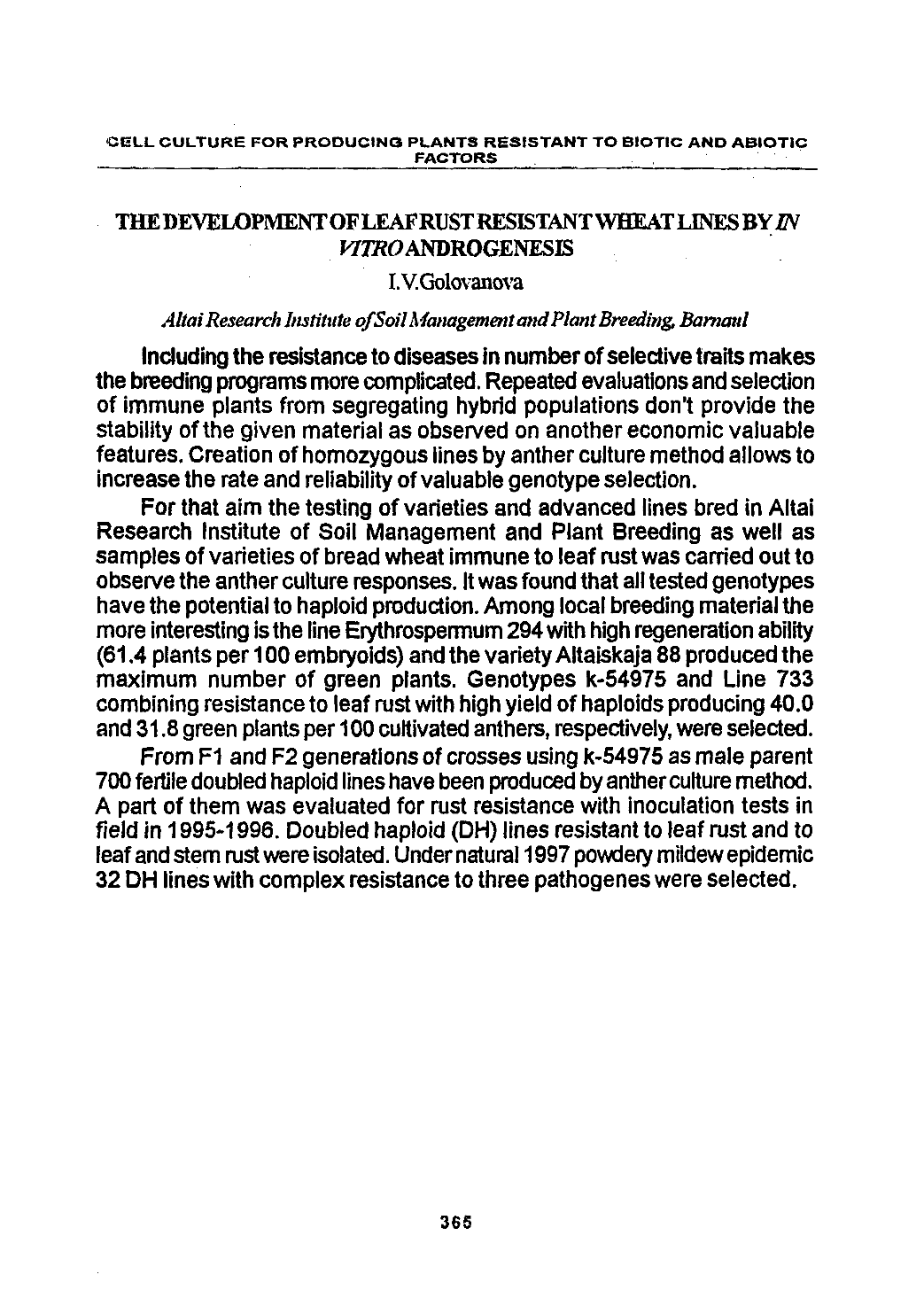

C E L L CU LTUR E FO R PRODUCING PLANTS R E SISTA N T TO BIOTIC AND AB IO TIC
FACTORS
THEDEVELOPMENTOFLEAFRUST RESISTANTWHEATLINES BY
IN
VITROANDROGENESIS
I.V.Golovanova
AltaiResearch Institute o fSoilManagementandPlantBreeding, Barnaul
Including the resistance to diseases in number of selective traits makes
the breeding programs more complicated. Repeated evaluations and selection
o f immune plants from segregating hybrid populations don’t provide the
stability o f the given material as observed on another economic valuable
features. Creation of homozygous lines by anther culture method allows to
increase the rate and reliability of valuable genotype selection.
For that aim the testing o f varieties and advanced lines bred in Altai
Research Institute o f Soil Management and Plant Breeding as well as
samples of varieties o f bread wheat immune to leaf rust was carried out to
observe the anther culture responses. It was found that all tested genotypes
have the potential to haploid production. Among local breeding material the
more interesting is the line Erythrospermum 294with high regeneration ability
(61.4 plants per 100 embryoids) and the variety Altaiskaja 88 produced the
maximum number o f green plants. Genotypes k-54975 and Line 733
combining resistance to leaf rust with high yield o f haploids producing 40.0
and 31.8 green plants per 100 cultivated anthers, respectively, were selected.
From F1 and F2 generations of crosses using k-54975 as male parent
700 fertile doubled haploid lines have been produced by anther culture method.
A part o f them was evaluated for rust resistance with inoculation tests in
field in 1995-1996. Doubled haploid (DH) lines resistant to leaf rust and to
leaf and stem rust were isolated. Under natural 1997 powdery mildew epidemic
32 DH lines with complex resistance to three pathogenes were selected.
365
Научная электронная библиотека ЦНСХБ









